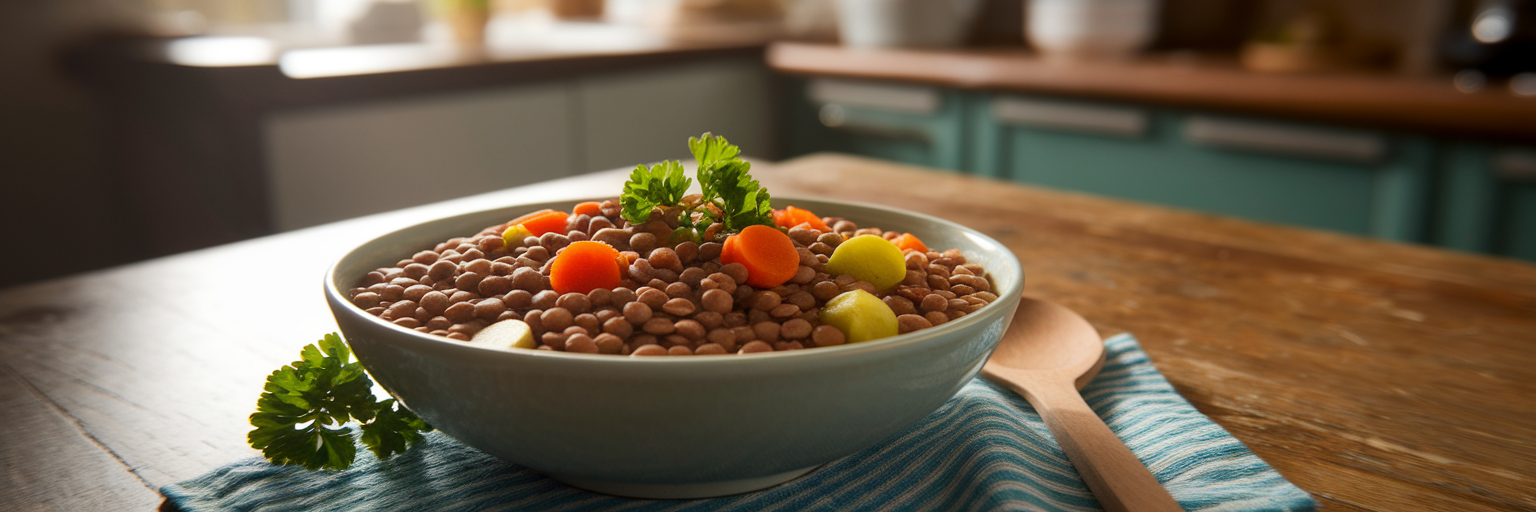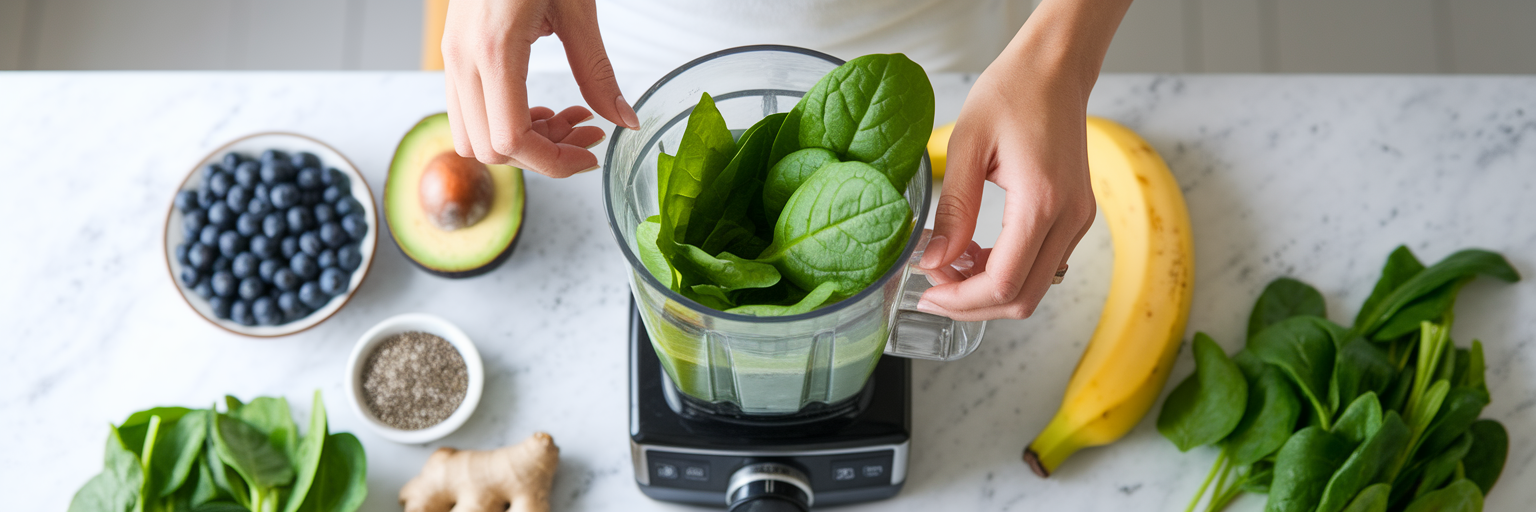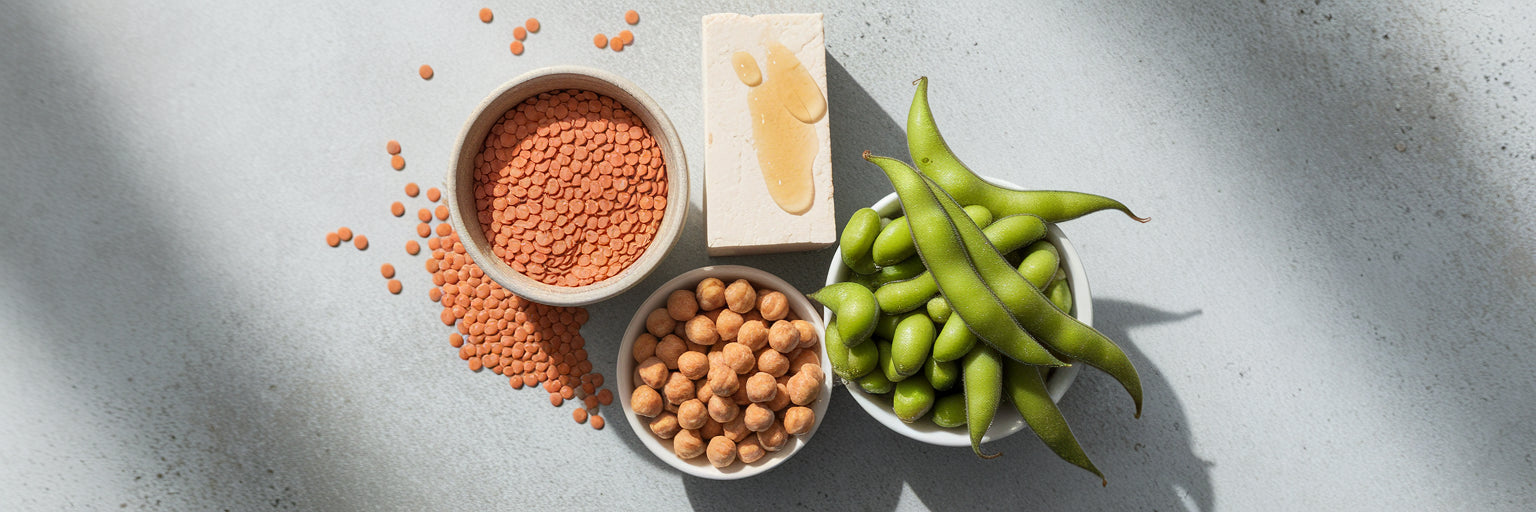Let's be honest, the conversation around weight management can feel complicated and, at times, a little discouraging. It’s easy to get caught up in counting every calorie, but what if we shifted the focus from just quantity to the quality of the food we eat? Healthy, sustainable weight management is less about restriction and more about nourishing your body with foods that make you feel strong, satisfied, and genuinely well.
This is where plant-based protein comes in. It’s a powerful ally on your health journey, offering benefits that go far beyond the number on the scale. Using vegan protein for weight loss isn't about a quick fix; it's about building a foundation for lasting health. In this guide, we'll explore how plant-based protein helps you feel fuller longer, preserve lean muscle while you lose fat, and fuel your body with clean nutrition for the long haul. Think of this as a friendly chat to help you reach your goals in a way that feels good.
The Satiety Secret of Plant-Based Foods
One of the biggest hurdles in weight management is fighting off hunger and cravings. You might be surprised to learn that plant-based proteins have a built-in secret weapon for keeping you satisfied. It all comes down to a few key nutritional advantages that work together to signal fullness to your brain, making it easier to stick to your goals without feeling deprived.
The Fiber Factor: Your Key to Feeling Fuller, Longer
Unlike most animal proteins, plant-based sources like beans, lentils, and chickpeas are packed with dietary fiber. Think of fiber as a slow-release fuel source for your body. It slows down digestion, which means the energy from your food is released gradually. This prevents the sudden blood sugar spikes and crashes that often lead to that afternoon slump and a desperate search for snacks. The result? You feel steadily energized and comfortably full for hours.
Calorie Density: Eat More, Weigh Less
Here’s a simple truth that can change your relationship with food: plant-based foods are generally less calorie-dense. This means you can enjoy larger, more visually satisfying portions without overloading on calories. A big, colorful salad with chickpeas and quinoa can be far more filling than a small, calorie-heavy portion of something else. This addresses both physical hunger and the psychological need to feel like you’ve eaten a substantial meal, which is key when you're trying to figure out how to feel full on a vegan diet.
Gut Health: Your Body’s Smart Signaling System
A high-fiber diet is exactly what your gut microbiome loves. When the good bacteria in your gut are well-fed, they thrive and help regulate everything from your mood to your immune system. They also play a direct role in sending satiety signals to your brain, letting you know when you’ve had enough. As the Obesity Medicine Association highlights, the high fiber content in a vegan diet is a primary reason it is so effective for weight management. A healthy gut is a smart gut, and it’s one of your best partners in achieving your weight goals.
Preserving Lean Muscle While Losing Weight

A common worry we hear is, "Will I lose muscle if I switch to plant-based protein?" It’s a valid question, but the great news is that it's largely a myth. With a little bit of strategy, plant based muscle building is not only possible but incredibly effective for creating a strong, lean physique. The goal of weight loss should always be to lose fat, not precious muscle that keeps your metabolism humming.
In fact, a 2025 study published in Sports Medicine - Open found that a well-planned vegan diet supports muscle strength and mass just as effectively as an omnivorous one. The key is to ensure you’re getting a variety of high-quality protein sources. Here are some of the best vegan protein sources to keep in your rotation:
- Quinoa: A true superfood, quinoa is a complete protein that contains all nine essential amino acids your body needs for muscle repair.
- Tofu and Tempeh: Made from soybeans, these are protein-dense staples that are incredibly versatile in the kitchen.
- Lentils and Chickpeas: These legumes are not only rich in protein but also packed with fiber, making them excellent for both muscle support and satiety.
- Hemp Seeds: A fantastic source of protein, healthy fats, and minerals like magnesium and iron. Just sprinkle them on anything!
You may have heard about "protein pairing," like eating rice and beans together. The idea is to combine different plant foods to get a complete amino acid profile. But here’s a tip to make it less stressful: you don’t need to eat them in the same meal. As long as you eat a variety of sources throughout the day, your body will get what it needs. If you need some inspiration, we have 3 easy vegan protein recipes you'll actually crave that make hitting your goals delicious and simple.
Fueling Your Body with Clean Nutrition
When we talk about a clean eating plant based diet, we’re not talking about perfection or restriction. We’re talking about choosing whole, unprocessed foods that are bursting with nutrients. Think vibrant fruits and vegetables, whole grains, nuts, and seeds. These foods are loaded with vitamins, minerals, and antioxidants that help reduce inflammation and support your body’s natural detoxification processes. It’s about fueling yourself with goodness from the inside out.
This approach has profound long-term benefits. A vegan diet for metabolic health has been shown to be particularly effective at improving key health markers. One of the most significant benefits is its ability to help reduce visceral fat, which is the dangerous fat that accumulates around your internal organs. By focusing on nutrient-dense plant foods, you’re not just managing your weight; you’re investing in your long-term wellness and reducing your risk for chronic conditions.
Let's look at a quick comparison to see the difference:
| Nutrient (per 100g cooked) | Lentils | Lean Ground Beef (85/15) |
|---|---|---|
| Calories | ~116 kcal | ~215 kcal |
| Protein | ~9 g | ~20 g |
| Dietary Fiber | ~8 g | 0 g |
| Saturated Fat | 0.1 g | ~5.5 g |
| Cholesterol | 0 mg | ~75 mg |
Note: This table provides an approximate comparison to illustrate the nutritional differences. Values can vary based on preparation and specific product. The data highlights how plant-based sources offer significant fiber with zero cholesterol.
Ready to fill your pantry with clean, powerful foods? You can explore our full range of products designed to support your health journey.
Practical Tips for Your Vegan Protein Strategy

Knowing the benefits is one thing, but putting it all into practice in your busy life is another. The key to success is making it easy and enjoyable. Here are a few simple, actionable tips to help you consistently hit your protein goals without feeling overwhelmed.
- Prep Ahead: Spend an hour on Sunday cooking a big batch of quinoa, lentils, or brown rice. Store them in the fridge to quickly add to salads, bowls, and wraps throughout the week. Future you will be very grateful.
- Smart Snacking: Hunger can strike at any time. Keep high-protein snacks on hand, like roasted chickpeas, a handful of almonds, or single-serving packs of edamame. This prevents you from reaching for less nutritious options when you're in a pinch.
- Boost Your Meals: This is the easiest trick in the book. Sprinkle hemp seeds, chia seeds, or nutritional yeast onto your oatmeal, smoothies, salads, or avocado toast. It’s an effortless way to add a few extra grams of protein and fiber to any meal.
Sometimes, you just need a convenient option. A high-quality protein powder can be a fantastic tool, especially on busy mornings or after a workout. A delicious scoop of our chocolate vegan protein in a smoothie can help you meet your needs without any fuss. Remember, supplements are there to support your diet, not replace whole foods.
If tracking macros feels like a chore, try this instead: focus on including at least one good protein source in every meal and snack. This intuitive approach helps build sustainable habits. If you have more questions, our FAQ page is a great resource.
Building a Sustainable Path to Your Health Goals
At the end of the day, managing your weight with vegan protein is about so much more than just losing pounds. It’s about creating a lifestyle that nourishes you from the inside out. By focusing on plant-based foods that keep you full and satisfied, help you build and maintain lean muscle, and flood your body with clean nutrition, you’re setting yourself up for lasting health and vitality.
This isn’t a temporary diet; it’s a sustainable way of eating that celebrates abundance, not restriction. It’s about feeling energized, strong, and confident in your body. So here’s a little challenge for you: try adding just one new plant-based protein source to your meals this week. It could be as simple as swapping ground beef for lentils in your pasta sauce or trying a tofu scramble for breakfast.
If you found these tips helpful, share this guide with a friend who's on their own health journey! And for more inspiration, feel free to explore more articles on our blog.



